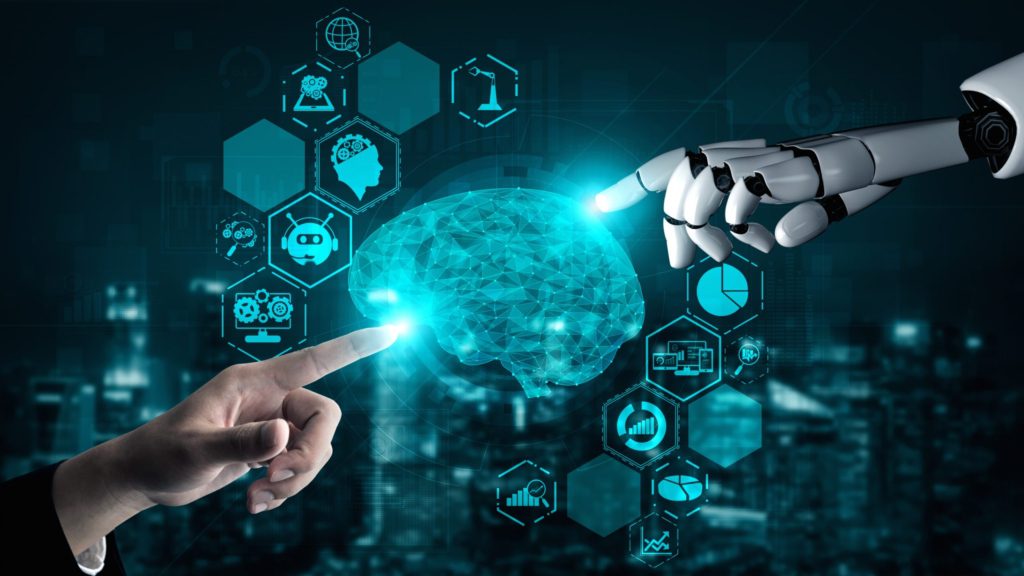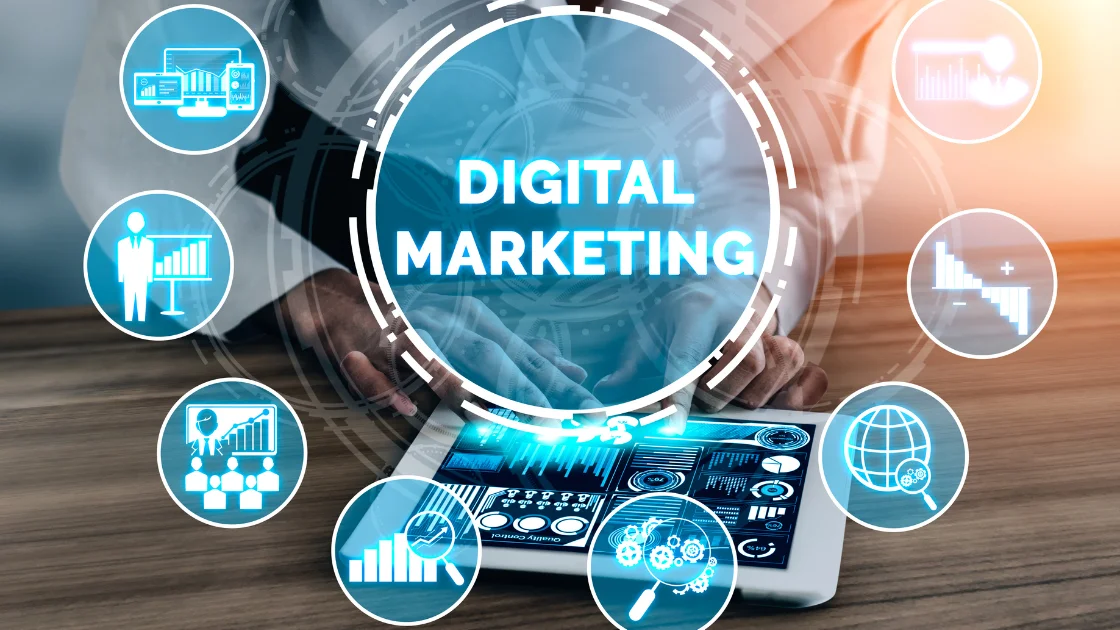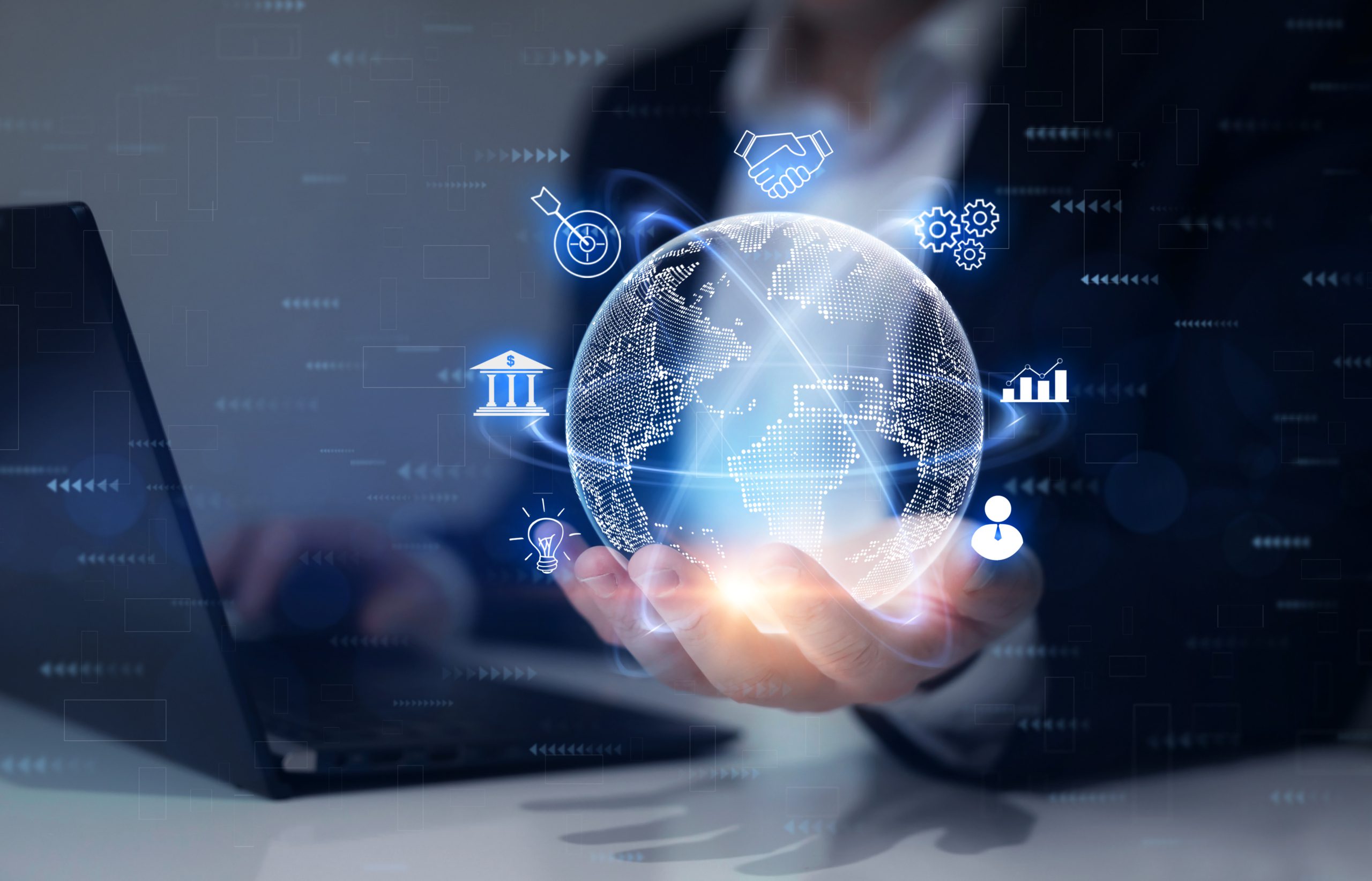As we start the new year, it’s becoming clear that artificial intelligence (AI) is no longer a concept confined to science fiction. It is rapidly making its way into our daily lives, transforming everything from the way we work to the way we interact with technology. This shift is particularly noticeable in the business and marketing sectors, where AI is not just assisting but actually driving major changes. So, what does this mean for businesses, marketers, and consumers in the not-so-distant future?
The Role of AI in the Business World
AI is already deeply integrated into the workplace, performing tasks that range from administrative duties to complex problem-solving. This change is largely driven by the need for businesses to become more efficient, cost-effective, and innovative. AI can analyze massive amounts of data far quicker than humans, making it an invaluable tool for decision-making. In industries like manufacturing, logistics, healthcare, and customer service, AI is already stepping in to streamline operations, reduce errors, and speed up production.
One of the most exciting developments is the use of AI in supply chain management. AI can predict market trends, optimize inventory levels, and even manage deliveries autonomously. This means fewer delays, better forecasting, and a smoother overall operation. For businesses, this represents a huge leap forward in terms of efficiency and profitability. At the same time, it could lead to job displacement in certain areas, as many tasks previously done by humans are automated. However, this will also create new opportunities for skilled workers to manage and maintain these AI systems.
AI and the Evolution of Marketing
The marketing landscape is one of the sectors most poised for transformation due to the rise of AI. This year, we can expect AI to have an even more profound influence on how brands connect with consumers. Today, AI is already being used to personalize content, optimize ad campaigns, and improve customer engagement through chatbots and virtual assistants. But the next level of AI-driven marketing will be far more sophisticated.
In 2025, AI will be able to analyze not just demographic data, but also psychological profiles, emotions, and consumer behavior patterns in real-time. This will allow businesses to create highly personalized and relevant marketing campaigns. Imagine an AI system that can instantly understand a potential customer’s mood based on their online activity, social media posts, or even facial expressions. It can then serve them the perfect ad at the right moment, increasing the likelihood of conversion. With AI constantly learning and evolving, this level of personalization will only improve over time.
One of the biggest advantages AI brings to marketing is its ability to predict consumer behavior with unprecedented accuracy. AI algorithms can analyze millions of data points from different sources—social media, online shopping patterns, and even conversations with customer service bots—to predict what products a consumer is likely to buy next. This data-driven approach means that marketers can target customers with laser precision, delivering ads that feel less like interruptions and more like helpful suggestions.
AI and Customer Service: A Double-Edged Sword
Customer service is another area that will be significantly impacted by AI. In 2025, it’s expected that many customer service roles will be handled by AI-powered systems. Virtual assistants, chatbots, and even voice-activated systems will take over routine inquiries, leaving human agents to handle more complex issues. This could drastically reduce wait times and improve the efficiency of customer service departments.
However, while AI can provide quick and accurate responses, it often lacks the emotional intelligence that humans bring to the table. Many consumers still value a personal touch, and there are situations where an AI system simply can’t offer the empathy or understanding a human customer service representative can. For example, when a customer is upset or frustrated, an empathetic human response can make all the difference. As such, businesses will need to find the right balance between automation and human interaction. AI can handle basic inquiries, but humans will still be needed for more sensitive or intricate matters.
One of the exciting things about AI is its ability to “learn” from customer interactions. With this year’s advancements, it’s likely that AI systems will have sophisticated capabilities in understanding human emotions and preferences. This means that they will be able to tailor their responses in a way that feels more natural, human-like, and personalized. Over time, businesses may be able to offer an entirely AI-powered customer service experience that is both efficient and emotionally intelligent.
How AI Will Transform Business Operations
Businesses are constantly looking for ways to streamline their operations, reduce overhead costs, and increase profits. AI, particularly in areas like finance, human resources, and project management, will play a huge role in this. In finance, AI can perform complex analyses of financial data, identify trends, and even predict future market movements. In HR, AI can automate the hiring process, from sorting through resumes to conducting initial interviews, allowing HR teams to focus on more strategic decision-making.
Project management is another area where AI will make a significant impact. AI can monitor project progress, assess risks, allocate resources, and even suggest ways to improve efficiency. With AI constantly learning from past projects, it will become an invaluable tool for managers looking to optimize their teams and achieve better outcomes.
Of course, this doesn’t mean that human workers will become obsolete. In fact, the rise of AI will likely create a need for workers with new skills, particularly in fields like data science, AI programming, and machine learning. The key for businesses will be to invest in upskilling their workforce so that they can adapt to the changing landscape. As AI takes over more routine tasks, employees will have the opportunity to focus on higher-level, creative, and strategic work that requires human insight and innovation.
The Consumer Experience: More Personalized, But More Intrusive?
As AI begins to shape the way businesses interact with consumers, the consumer experience is also set to undergo a major shift. On one hand, consumers will benefit from an experience that is highly tailored to their preferences, needs, and behaviors. With AI analyzing data from every interaction, businesses will be able to offer products and services that feel incredibly relevant and timely.
For example, imagine walking into a store, and an AI system greets you by name, knows your shopping history, and suggests products based on your previous purchases or even current mood. While this level of personalization can enhance the consumer experience, it raises questions about privacy. With so much personal data being collected and analyzed, many consumers may feel uneasy about how their information is being used.
In response to these concerns, businesses will need to be transparent about their data collection practices and give consumers more control over how their information is shared. Consumers may become more selective about the data they share with brands, so businesses will need to be prepared to offer value in exchange for access to personal data. For example, businesses might offer exclusive discounts or personalized recommendations to incentivize consumers to share more information.
The Ethical Considerations: Where Do We Draw the Line?
With the rise of AI in business and marketing, ethical considerations will become even more important. As AI systems are entrusted with more decision-making power, there will be growing concerns about transparency, accountability, and fairness. If an AI system makes a mistake—say, a marketing campaign goes wrong, or a customer service bot provides incorrect information—who is responsible?
Moreover, as AI takes over more tasks, there will be questions about job displacement and the role of humans in the workforce. While some jobs will be automated, others will emerge, requiring different skill sets. Governments and businesses will need to work together to ensure that workers are provided with the training and resources they need to transition into new roles.
Another ethical concern will be the potential for AI to perpetuate bias. AI systems are only as good as the data they are trained on, and if the data is biased, the AI system will reflect that bias. This can lead to discrimination in areas like hiring, lending, and marketing. To address this, companies will need to be vigilant about the data they use to train their AI systems and implement safeguards to ensure fairness and inclusivity.
The Future of AI in Business and Marketing
In 2025, AI will be a central part of the business and marketing landscape, driving efficiency, personalization, and innovation. Businesses will use AI to improve operations, enhance customer service, and create more effective marketing campaigns. While the impact of AI will be overwhelmingly positive in terms of efficiency and profitability, it also raises important questions about privacy, job displacement, and ethics.
The key to navigating this new world will be balance. Businesses will need to leverage AI to enhance human capabilities, not replace them entirely. Marketers will need to use AI to create meaningful, personalized experiences without crossing the line into invasiveness. And most importantly, everyone—businesses, workers, and consumers alike—will need to engage in an ongoing conversation about how to use AI responsibly and ethically.
The future is bright, but it’s up to all of us to shape it. As we head into 2025, one thing is certain: AI will change the game, and those who adapt to this new reality will be the ones who thrive.




